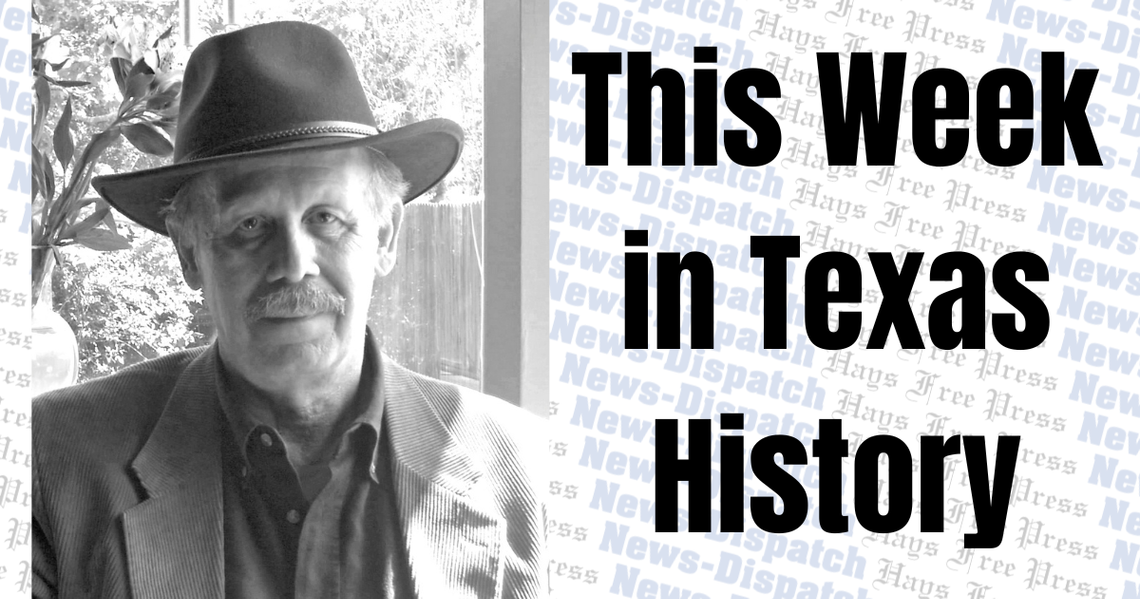With Election Day just seven weeks away, the Texas branch of the American Party, better known as the “Know Nothings,” met on Jun. 11, 1855 to select a slate of candidates for statewide office.
In only three years, the grass-roots movement had evolved from a fraternal group in the Northeast called the Order of United Americans into a major political force. Combining secret passwords, handshakes and other mumbo jumbo with xenophobic politics, the new third party spread like wildfire across the Midwest and into the South.
Recruits were carefully screened and acquainted with the inner workings of the organization on a strict need-to-know basis. The Know Nothing nickname came from the refusal of members to discuss the party in public or even to acknowledge its existence.
The Know Nothings sought to shift the great debate of those tumultuous times from the polarizing issue of slavery to simplistic scapegoats – foreign immigrants and the Catholic Church. They demonstrated the power of their gut appeal in 1854 by electing nine governors and capturing 104 of the 234 seats in the United States House of Representatives.
Days after the Know Nothings revealed their Texas ticket in June 1855, Democrats responded with the “bombshell convention.” Support was reaffirmed for the second-term bid of Gov. Elisha Pease and a new running mate chosen to replace Lt. Gov. David Dickson, who had defected to the Know Nothings in order to run for governor.
Although the Democratic denunciation scared off a number of fair-weather converts, the Know Nothings pushed ahead with their zealous crusade. Far from demoralized, they counted on a famous ace in the hole to lead them to victory.
As a lame-duck U.S. Senator scorned by the Democratic establishment, Sam Houston confirmed in January 1855 his much-rumored flirtation with the American Party. After joking, “Of the Know Nothings, I know nothing,” Houston added in a serious vein that he shared many of their views.
Though still politically immature, the Know Nothings offered The General not only a personal platform but also the possibility of a pro-Union party. If Houston played his cards right, he could crush his Democratic enemies at home while riding a wave of nationwide unrest into the White House.
Nine days before Texans went to the polls on Aug. 5, 1855, Senator Houston endorsed the Know Nothing challenge in an open letter to the voters. “I believe the salvation of the country is only to be secured by adherence to the principles of the American Order.”
This stunning statement from “The Hero of San Jacinto” made the difference in several close contests. Besides a congressional race, Know Nothings beat favored Democrats in 25 state legislative districts and took over city hall in Galveston and San Antonio.
In addition to Houston, an impressive array of Lone Star notables lent respect to the Know Nothing cause. Judge George W. Baylor, the legendary Indian fighter, served as the party’s “Grand President.” Thomas Jefferson Chambers, Rip Ford, Sterling Robertson and Hugh McLeod also played important parts in the maverick movement.
However, no sooner did the American Party jell in Texas than it started to come apart at the seams. Every malcontent with an ax to grind jumped on the Know Nothing bandwagon but inevitably jumped off, when his own personal agenda failed to be adopted as the official program.
Houston clearly was alarmed by the rampant religious prejudice in the party but weakly protested that the purpose of the Know Nothings was “not to put down the Catholics but to prevent Catholics from putting down Protestants.” His uncharacteristically clumsy attempt to minimize the bigotry only made the problem worse.
Other Know Nothings sang a more intolerant tune. A San Antonio newspaper editor asked rhetorically, “Hate popery? Who can help hating it? Religion hates it. Heaven hates it. It is a moral stench in the nostrils of every being who is good and pure.”
By 1856 internal bickering had paralyzed the party and started the Know Nothings’ slide into political oblivion. To Houston’s bitter disappointment, the presidential nomination went to Millard Fillmore, the last Whig to occupy the White House.
Lagging far behind Democrat James Buchanan and Republican John C. Fremont in the balloting that fall, the has-been Fillmore won only the state of Maryland. In the congressional elections, the Know Nothings lost over half their seats and relinquished the rest before the Civil War.
In the final analysis, the short life of the American Party proved that political parlor tricks could not long divert the attention of the nation from the inseparable issues of slavery and secession.
“Unforgettable Texans” brings to life the once famous people no one remembers today. Order your copy for $24.00 by mailing a check to Bartee Haile, P.O. Box 130011, Spring, TX 77393.










